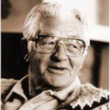Field Notes: The Grace Note of the Canyon Wren
Description
More Details
Subjects
Also in this Series
Published Reviews
Booklist Review
Lopez is known best for his nature writing, especially the National Book Award winner Arctic Dreams (1986), so it comes as no surprise that his passion for the earth is the impetus for his fiction. Each story in this rather impassioned collection involves a person giving himself or herself up to a beloved and, ultimately, sacred place. These are tales, then, of solitude, contemplation, and grace. The volume's introduction, "Within Birds' Hearing," sets the tone. It's a remarkably dramatic piece about a man whose life is saved, on a reckless trek across the desert, by his unarticulated faith and the seemingly miraculous intervention of birds. In "Teal Creek," a humble narrator records his lifelong fascination with a quiet, meditative man, a genuine anchorite, living alone in the woods. Lopez's characters, several of whom are scientists, often experience telepathic connections to other people, animals, and forces such as the wind. In the best of his fablelike stories, including "Sonora" and "The Runner," these associations are magical and meaningful. In the stiffer, more propagandistic tales, Lopez's politics overwhelm the delicate structure of his narrative. In either case, however, Lopez's prose has a preternatural heft and reverberation, and his stories possess the haunting significance of dreams. ~--Donna Seaman
Publisher's Weekly Review
This is the third and apparently final book in a trilogy of story collections by the justly admired and National Book Award-winning author (the earlier volumes are Desert Notes and River Notes). Lopez's stories have in common an utterly fresh, pellucid style: He writes about people and animals in nature in a way that is profound but never cloying, and with a sense of elegaic wonder. There are stories in the present volume that Lopez has not surpassed: ``The Negro in the Kitchen,'' a marvelous sketch of the impact of utter liberation; ``Sonora,'' a subtle study of the relationship of landscape and sexuality; ``Empira's Tapestry,'' a deeply touching story of an overlooked woman of great gifts; and ``Conversation,'' a tour de force in which a passionate wildlife advocate tries to break through the ``practical'' shell of a well-meaning official who thinks he has his priorities straight. All the stories contain moments of sheer magic, all reflect Lopez's abiding passion for the beauty and mystery of the earth and its creatures. (Sept.) (c) Copyright PWxyz, LLC. All rights reserved
Library Journal Review
Infused with magic and mystery, these 12 stories are frequently more lyric than narrative. The protagonists include anthropologists, botanists, and investment counselors, and settings range from Greenland to Australia, with intermediate stops in Manhattan and inside the Washington, D.C., beltway. Within such varied contexts, Lopez skillfully develops a recurring pattern: chance encounters bring isolated individuals to moments of sharp insight. In "Pearyland," for example, a biologist travels to a remote region to study the ecology of death and acquires there a disturbing vision of life. Lopez has won prizes for both fiction and nonfiction, and this collection is the final volume in a trilogy that also includes Desert Notes (LJ 6/15/76) and River Notes (LJ 11/1/79). Recommended for general collections.-Albert E. Wilhelm, Tennessee Technological Univ., Cookeville (c) Copyright 2010. Library Journals LLC, a wholly owned subsidiary of Media Source, Inc. No redistribution permitted.
Kirkus Book Review
In this extraordinary collection, the final installment of a trilogy begun with Desert Notes (1976) and River Notes (1979), National Book Award winner Lopez (for Arctic Dreams, 1986) continues to use nature to teach us about ourselves. Each of the 12 stories in this slim volume creates a mystical world from everyday lives, depicting men and women coming up against situations with which they find themselves surprisingly unequipped to deal. As each character struggles to cope with predicaments that range from failing professions to disintegrating families to death, guidance comes from nature: the song of a wren that leads a man lost in the desert to water (``Introduction: Within Birds' Hearing''); the wildflowers that lead an estranged botanist back to his wife and daughter (``Homecoming''). Often a story revolves around a protagonist learning to let go of convention in order to hear nature. This listening can be approached directly, as when an old friend tries to convince the head of the US Fish and Wildlife Service to recognize that ``our biology is unraveling in a holocaust of extinct species'' and declare the ferruginous hawk an endangered species (``Conversation''). But Lopez does an even better job of illuminating the wisdom of nature when he offers ways of listening that are more like dreaming. For example, a wildlife biologist studying an arctic oasis learns the sorrow of modern animals when he discovers a land where only the souls of those killed properly (when the hunter prays after the kill) can come to search for new bodies (``Pearyland''), and a pack of wolverines teach an Alberta hunter why they don't want to be trapped (``Lessons from the Wolverine''). Through it all, Lopez's prose reads like poetry. His short, simple, and profound tales convey a deep respect for the environment and for the beauty of relationships, knowledge, language, and love. Haunting, seductive, and sensual.
Library Journal Reviews
Infused with magic and mystery, these 12 stories are frequently more lyric than narrative. The protagonists include anthropologists, botanists, and investment counselors, and settings range from Greenland to Australia, with intermediate stops in Manhattan and inside the Washington, D.C., beltway. Within such varied contexts, Lopez skillfully develops a recurring pattern: chance encounters bring isolated individuals to moments of sharp insight. In "Pearyland," for example, a biologist travels to a remote region to study the ecology of death and acquires there a disturbing vision of life. Lopez has won prizes for both fiction and nonfiction, and this collection is the final volume in a trilogy that also includes Desert Notes (LJ 6/15/76) and River Notes (LJ 11/1/79). Recommended for general collections.-Albert E. Wilhelm, Tennessee Technological Univ., Cookeville Copyright 1994 Cahners Business Information.
Publishers Weekly Reviews
Final book in NBA winner Lopez's trilogy of short stories (Desert Notes; River Notes), exploring the sometimes magical interaction between people and the natural world. (Sept.) Copyright 1995 Cahners Business Information.
Publishers Weekly Reviews
This is the third and apparently final book in a trilogy of story collections by the justly admired and National Book Award-winning author (the earlier volumes are Desert Notes and River Notes). Lopez's stories have in common an utterly fresh, pellucid style: He writes about people and animals in nature in a way that is profound but never cloying, and with a sense of elegaic wonder. There are stories in the present volume that Lopez has not surpassed: ``The Negro in the Kitchen,'' a marvelous sketch of the impact of utter liberation; ``Sonora,'' a subtle study of the relationship of landscape and sexuality; ``Empira's Tapestry,'' a deeply touching story of an overlooked woman of great gifts; and ``Conversation,'' a tour de force in which a passionate wildlife advocate tries to break through the ``practical'' shell of a well-meaning official who thinks he has his priorities straight. All the stories contain moments of sheer magic, all reflect Lopez's abiding passion for the beauty and mystery of the earth and its creatures. (Sept.) Copyright 1994 Cahners Business Information.































